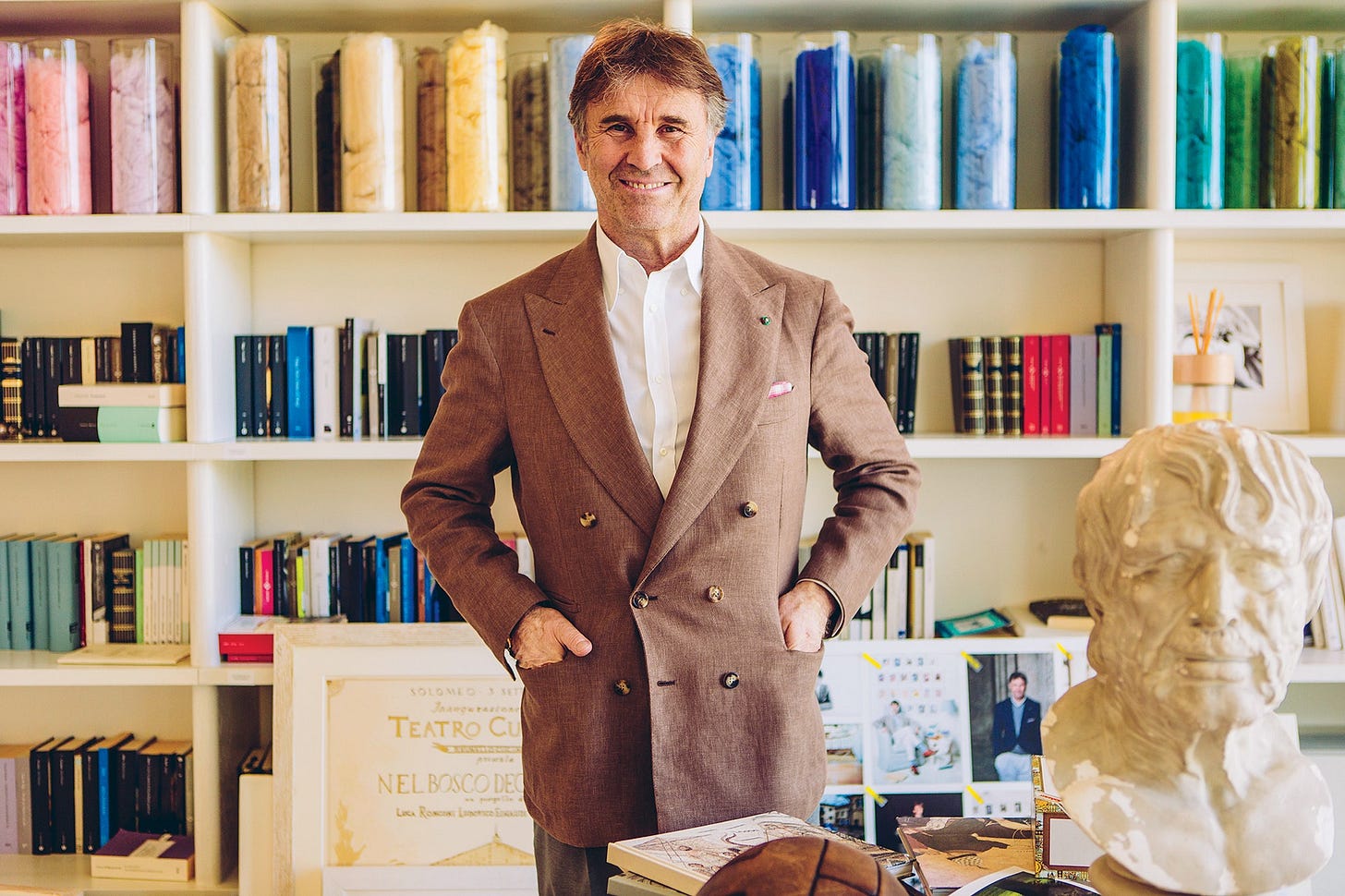The Profile Classic: The Philosopher King of Cashmere
“I would like to make a profit using ethics, dignity, and morals."
I first published this Profile Dossier two years ago, so I wanted to re-surface it as a refresher. There are a lot of practical tidbits that you can apply to your own life immediately. I hope you enjoy.
—
Brunello Cucinelli is often called the "King of Cashmere," but he rules his fashion empire with a gentle hand.
Born on a farm in the central part of Italy, Cucinelli has never abandoned his roots.
Today, his eponymous Italian fashion brand specializes in luxury menswear, women's wear and accessories. Cucinelli has built a $600-million fashion empire based in Solomeo, a tiny town with roughly 400 inhabitants, most of whom he employs.
Every year, Cucinelli re-invests 20% of the profits for the upkeep of Solomeo and its residents. He has given money toward infrastructure improvement, he has restored the church, opened a school, and built a brand new theater. His employees receive generous time off and they are not allowed to stay past 5:30 p.m.
His motivation for creating an ethical workplace came from watching his father, an uneducated farmer, be demeaned by his superiors when he worked at a cement factory.
“My father was humiliated,” Cucinelli says. “He didn’t make much money at all. His work didn’t do anything to make life more beautiful. He worked in a very tough environment.”
When Cucinelli saw his father's "teary eyes," he decided that the objective of his life would be to give those with whom he worked a moral and economic dignity.
As a result, the fashion mogul has been preaching a new business approach called "Humanistic Capitalism," in which money is seen as a tool to improve the human condition. Services, schools, places of worship, and cultural heritage require capital, but they empower the community.
"I believe in capitalism," Cucinelli says. "I need to make a profit, but I would like to do it with ethics, dignity, morals. It's my dream."
Here's what we can learn from the business powerhouse who finds inspiration for building his company's culture in the ancient texts of philosophers, artists, and writers.
✨ The rest of this newsletter is only available for premium members of The Profile, whose support makes this work possible. If you’re not already a premium member, consider upgrading your subscription below for access to the full Profile Dossier. ✨



